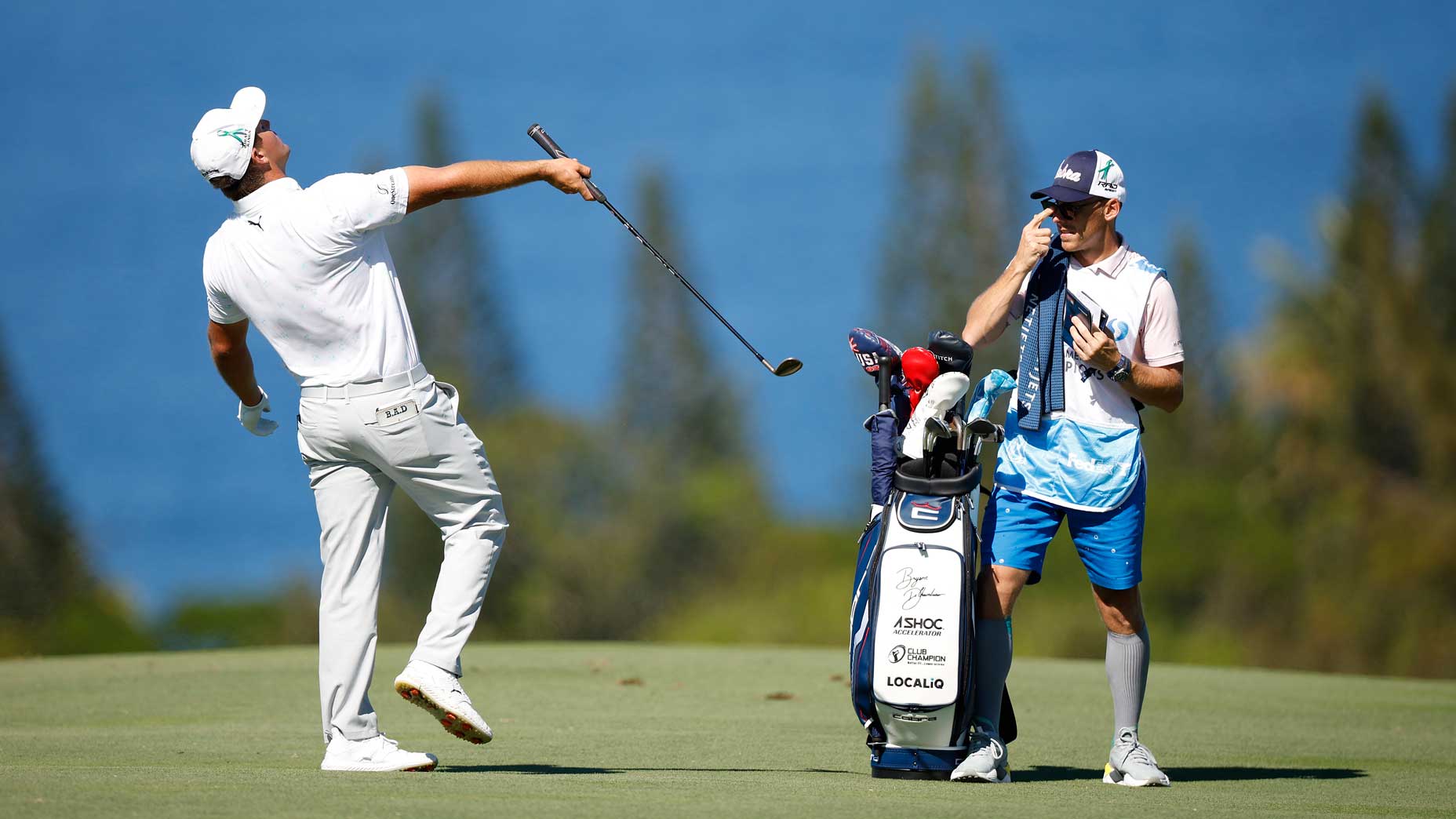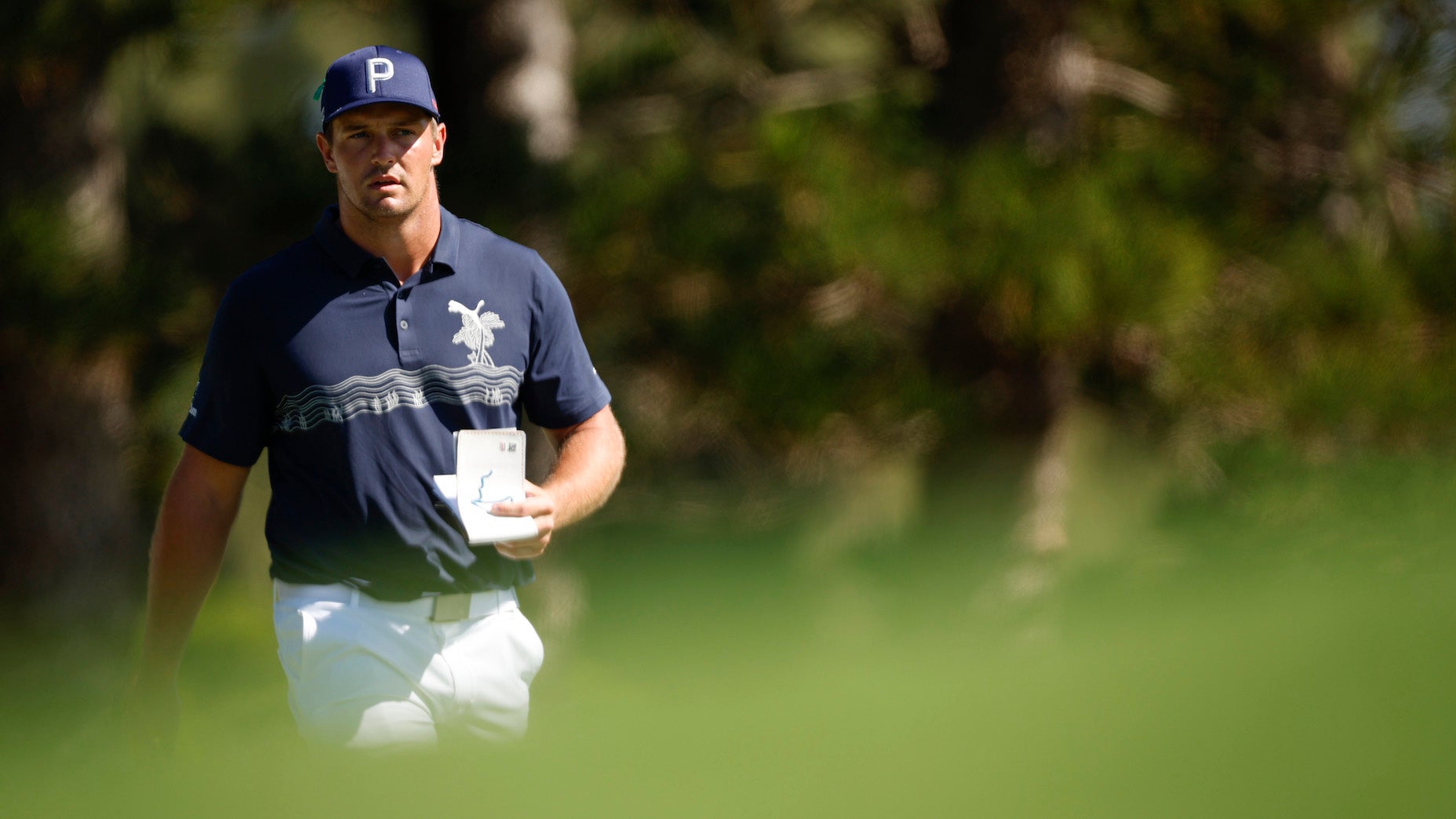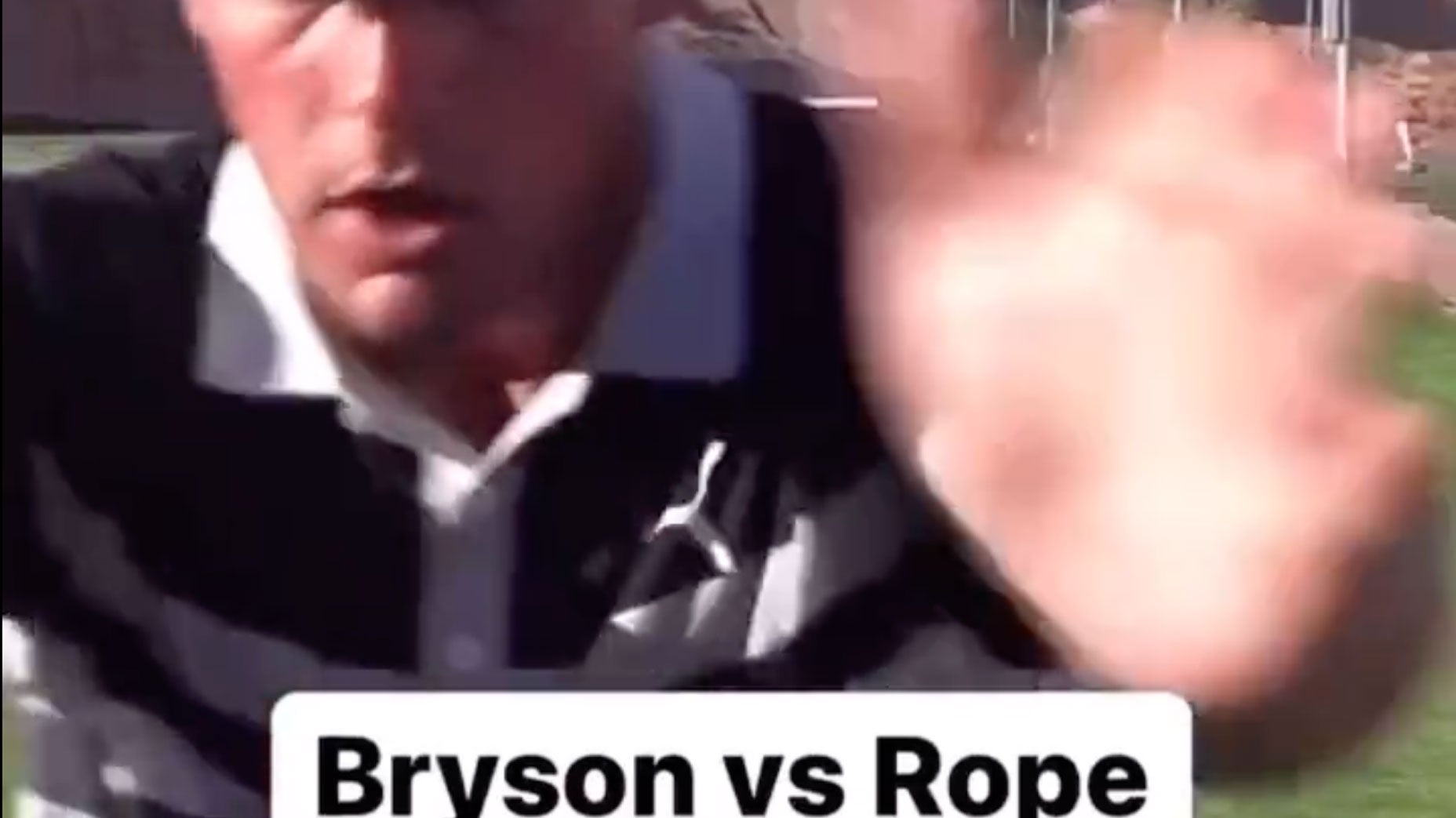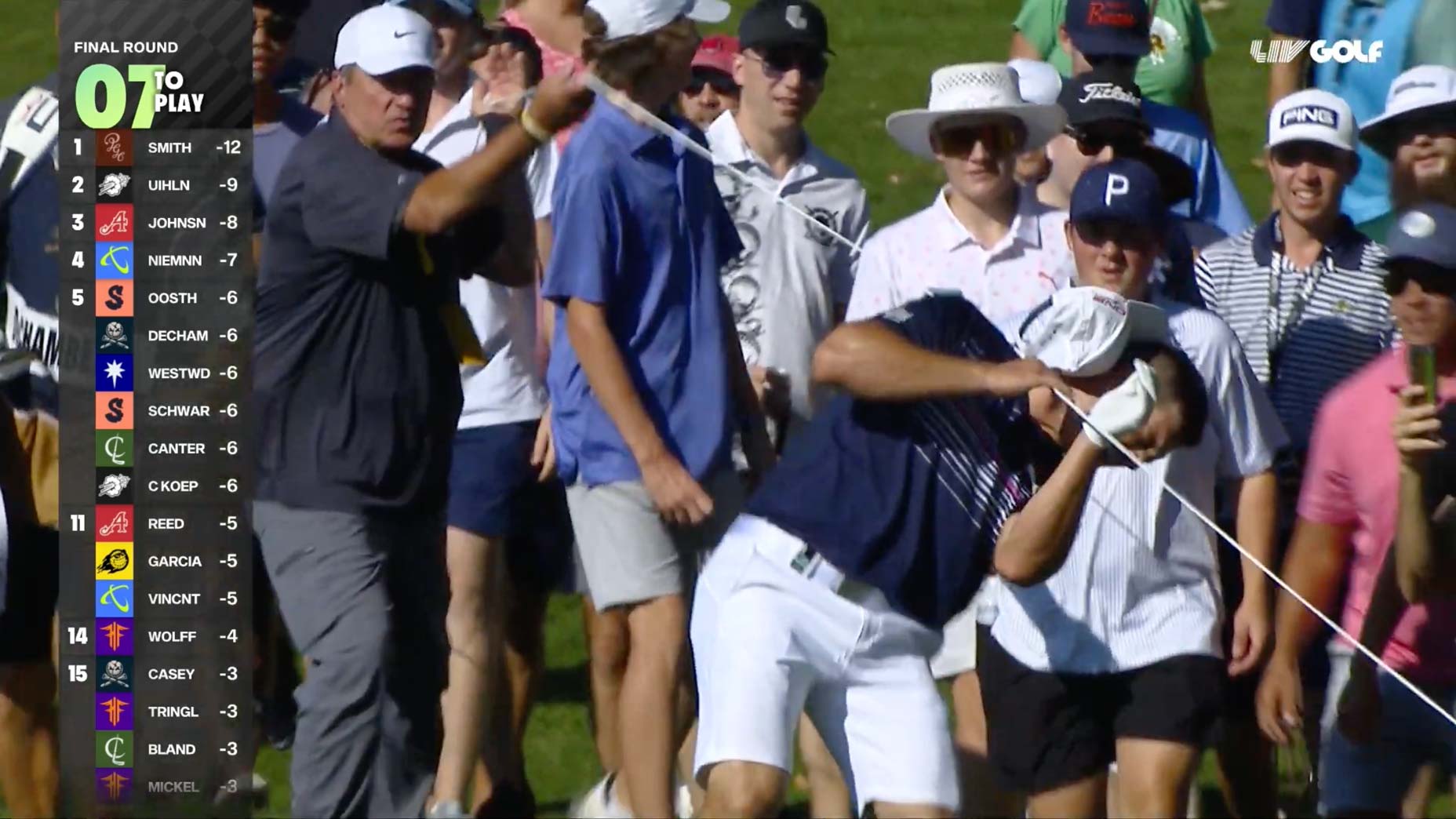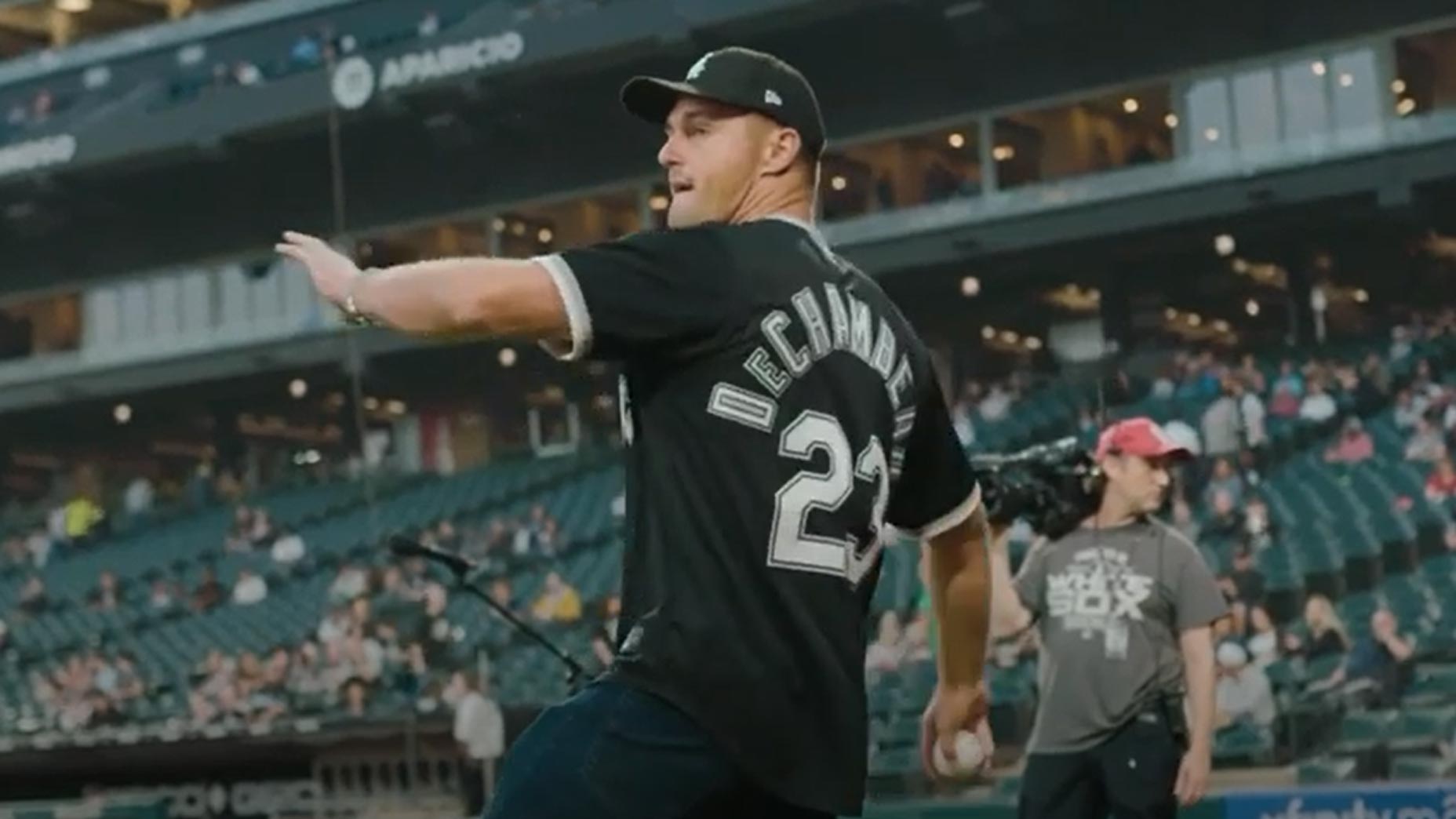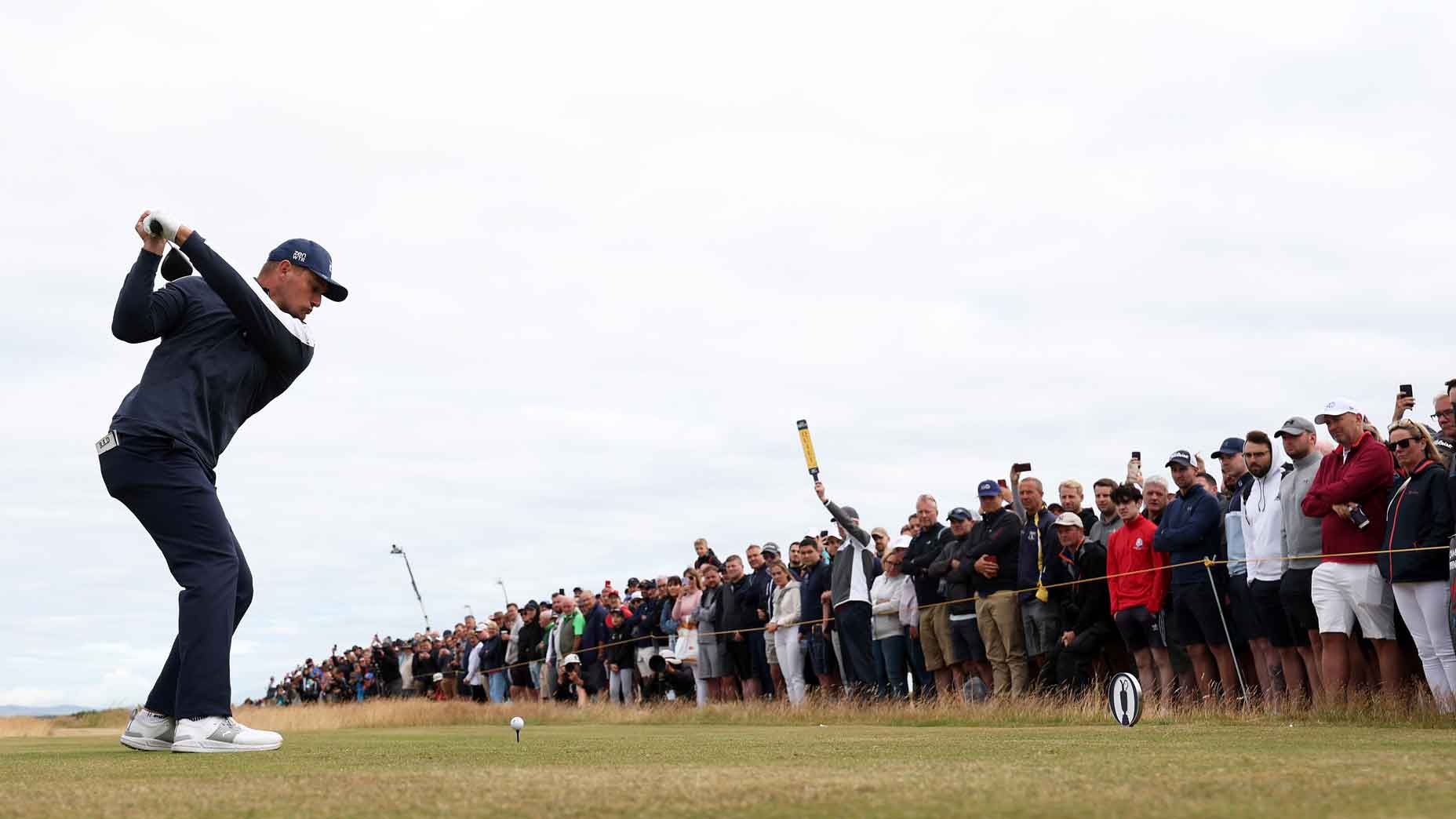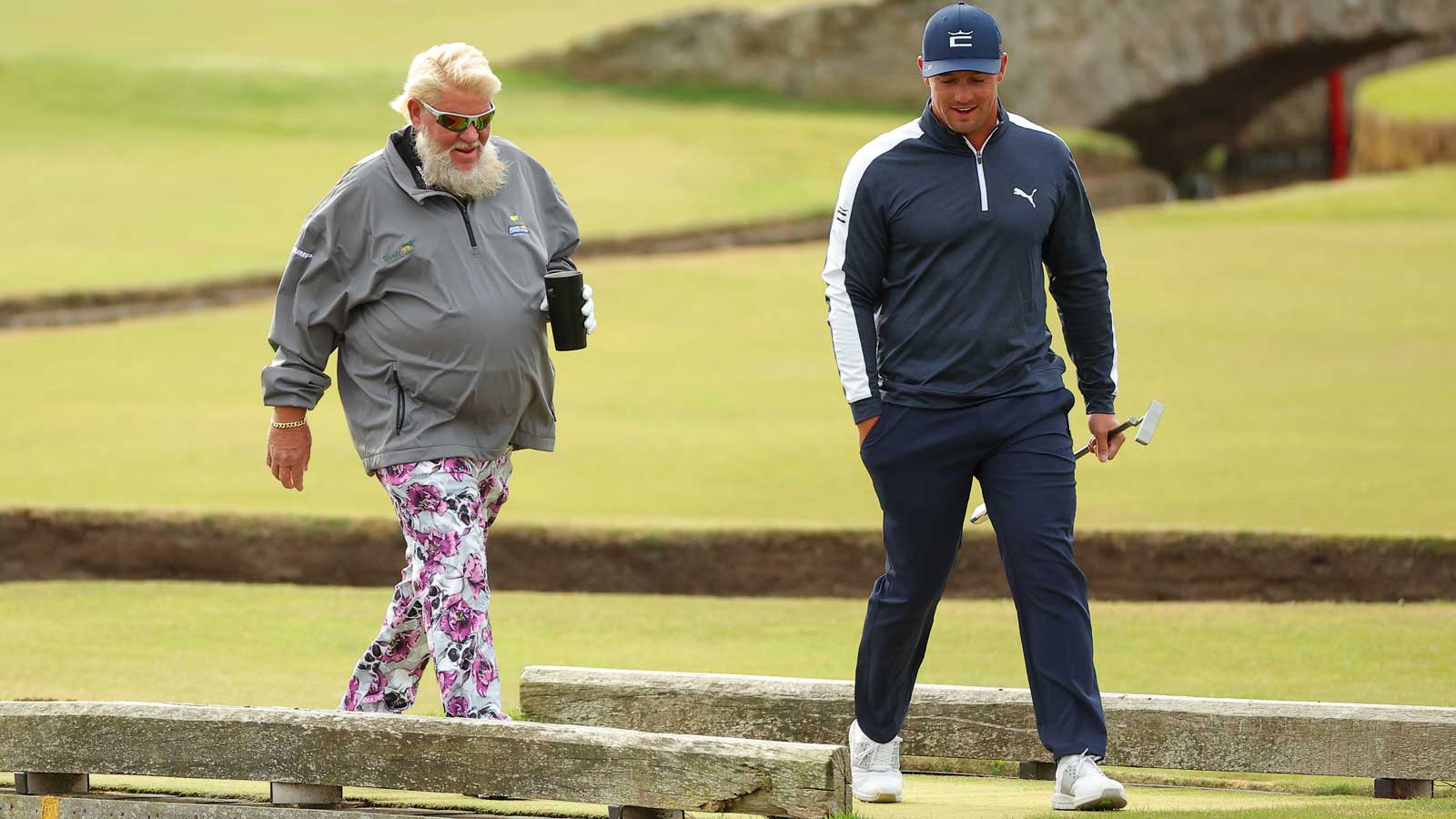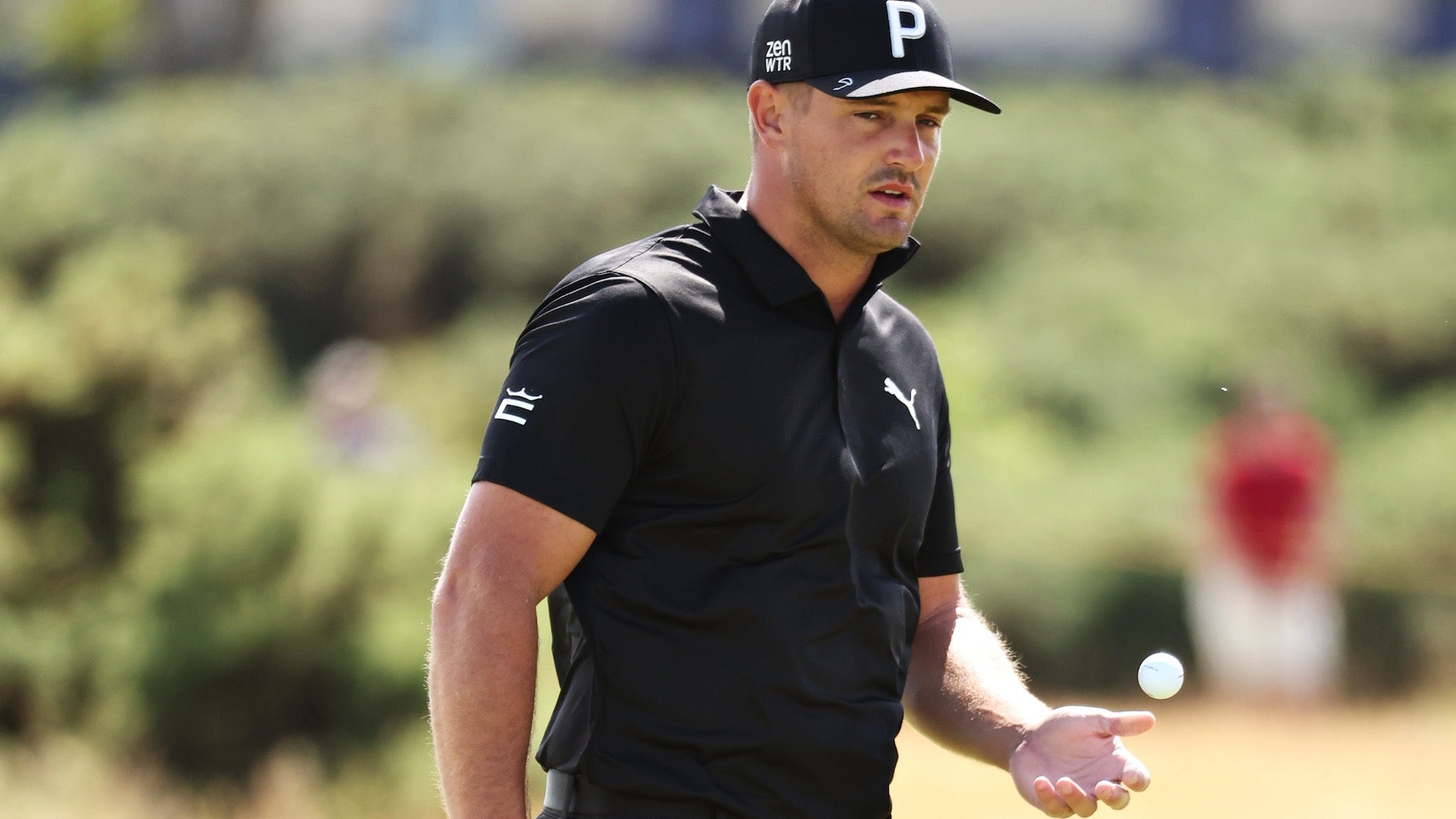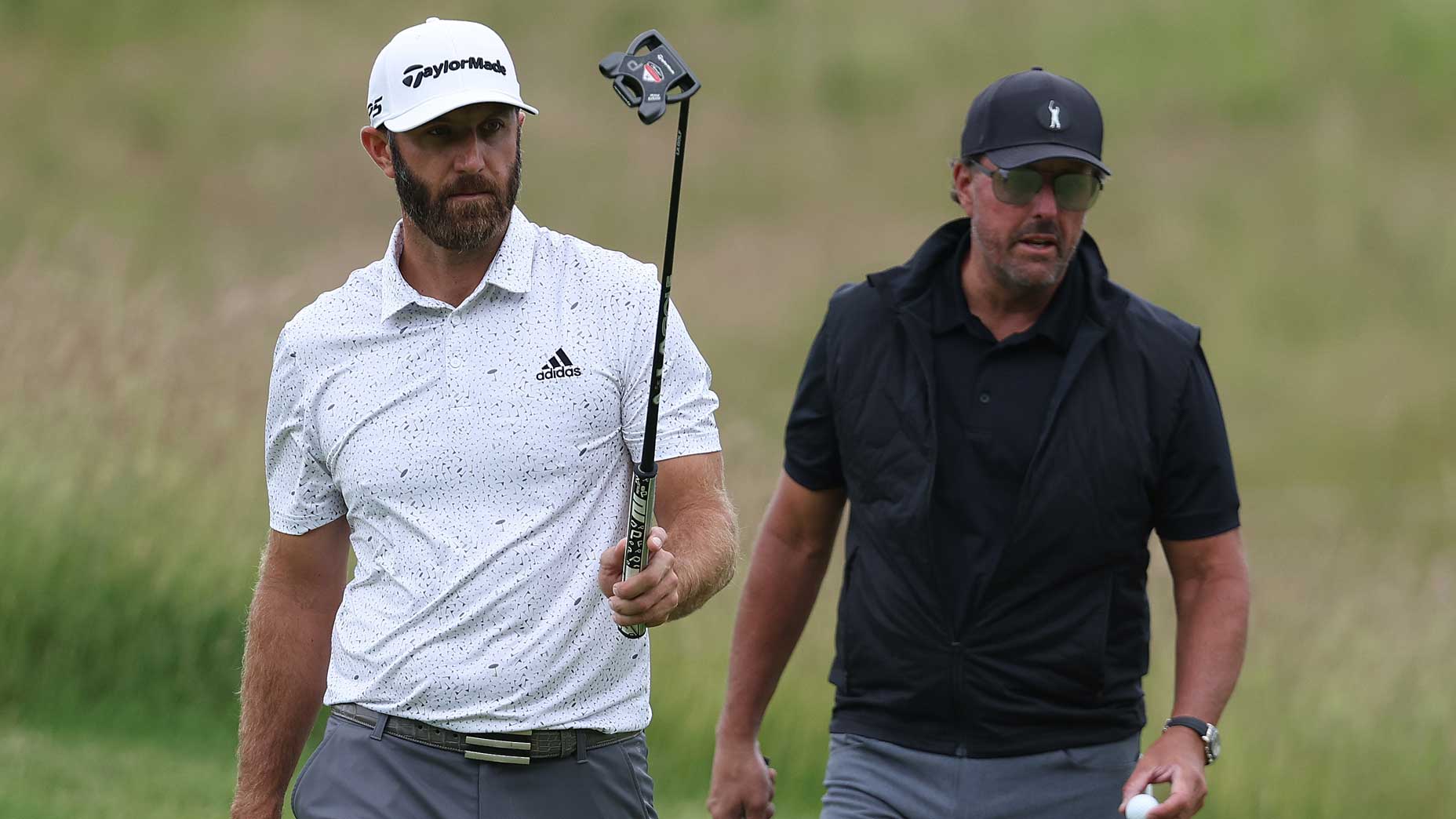There are the highs. For Bryson DeChambeau, those are any one of his eight PGA Tour wins. Especially the U.S. Open one. It’s the Ryder Cup and Presidents Cup wins. It’s the U.S. Amateur and NCAA tourney wins.
And there is the other side. During his press conference in advance of the upcoming Saudi International, DeChambeau talked those, too. After a summer that included a renewed feud with Brooks Koepka, a breakup with his caddie and pushback around comments he made on the Covid vaccine, he said he considered walking away from the pro game.
“I think that’s where things got to, and it’s just very disappointing for me to feel like I was just getting hammered all the time,” DeChambeau said. “I was just like, you know what, I don’t really need this anymore. This once great game that was giving me so much just turned quite a bit on me. I feel like it’s not worth it anymore. As time has gone on, that has changed. I have grown. I have learned the place that I’m in. Is it difficult and frustrating sometimes still? Absolutely, just like anything.”
Bryson DeChambeau’s latest remarks remind us how he wants to be heardBy: Dylan Dethier
And that’s the thing. Try as we may, the lows and the highs aren’t going anywhere. They’ll come, and they’ll go. So you cope. And, in the case of the player who cooked up single-length irons and a single-plane swing, and beefed up his body and his distance, you do the math on a formula for just how much your mental status influences your play. And then you go to the range. That you can control.
You know those scenes where he’s turning out the lights after a round? It’s part of his method. It’s practice, yes. And it’s also to safeguard himself. The emotions may spike, but the game stays relatively flatlined.
“As it comes to my mental game and my thought process in that, usually the mental game for me only affects me 10 percent positive or negative on my skill set,” DeChambeau said. “It’s like I have a certain skill, and then it affects me positively 10 percent or negatively 10 percent.
“That’s why I work so hard because I’m always trying to improve the skill set because no matter my mental game, it wouldn’t matter. But there was a point in time where that mental game encroached probably about 20 or 30 percent in a negative way, and that was just not a good place, not a good feeling from numerous factors and whatnot.”
It has some roots in some of the stories we’ve heard about practice, the ones where the player who says the game itself — and some of the emotions that come with it — was nothing, because the preparation was everything. Tiger Woods, in fact, though in slightly different terms, subscribes to it. In an interview with Golf Digest, he was asked how his 12-year-old son, Charlie, has been able to “relish” high-pressure spots, like the one he was in at last month’s PNC Championship, and he simply answered: “It’s the same shot.”
Why Bryson DeChambeau is chronicling his life (and, yes, chasing more speed) on YouTubeBy: Luke Kerr-Dineen
“As I’ve explained to him, as my dad explained to me, no matter how many people are around you, whether it’s zero or millions, it doesn’t matter, it’s the same shot,” Woods said. “Doesn’t change. It’s exactly the same shot. The ball’s not moving. It’s just sitting there. Now you got to hit the shot. And so whether he’s at home playing with his buddies, or he’s playing with me, or he’s playing tournament golf, or he’s playing in front of TV crews, it doesn’t matter.
“It’s the same exact shot.”
And that’s what DeChambeau is after. Go through some of what he did last summer? Same shot. Lead the U.S. Open? Same shot. Your mind might be racing, but, hopefully, your game is still just walking along.
“I feel like as time has gone on, I’ve got people around me that have helped me understand who I am at a better level and continue to grow in the way that I want to grow,” DeChambeau said. “Obviously, I’ve had struggles in the past with different, numerous things that have gone on. We can talk about that another time. But I’m continuing to learn and grow and respond in ways that help the game of golf.
“That’s honestly all I want.”
Latest In Instruction
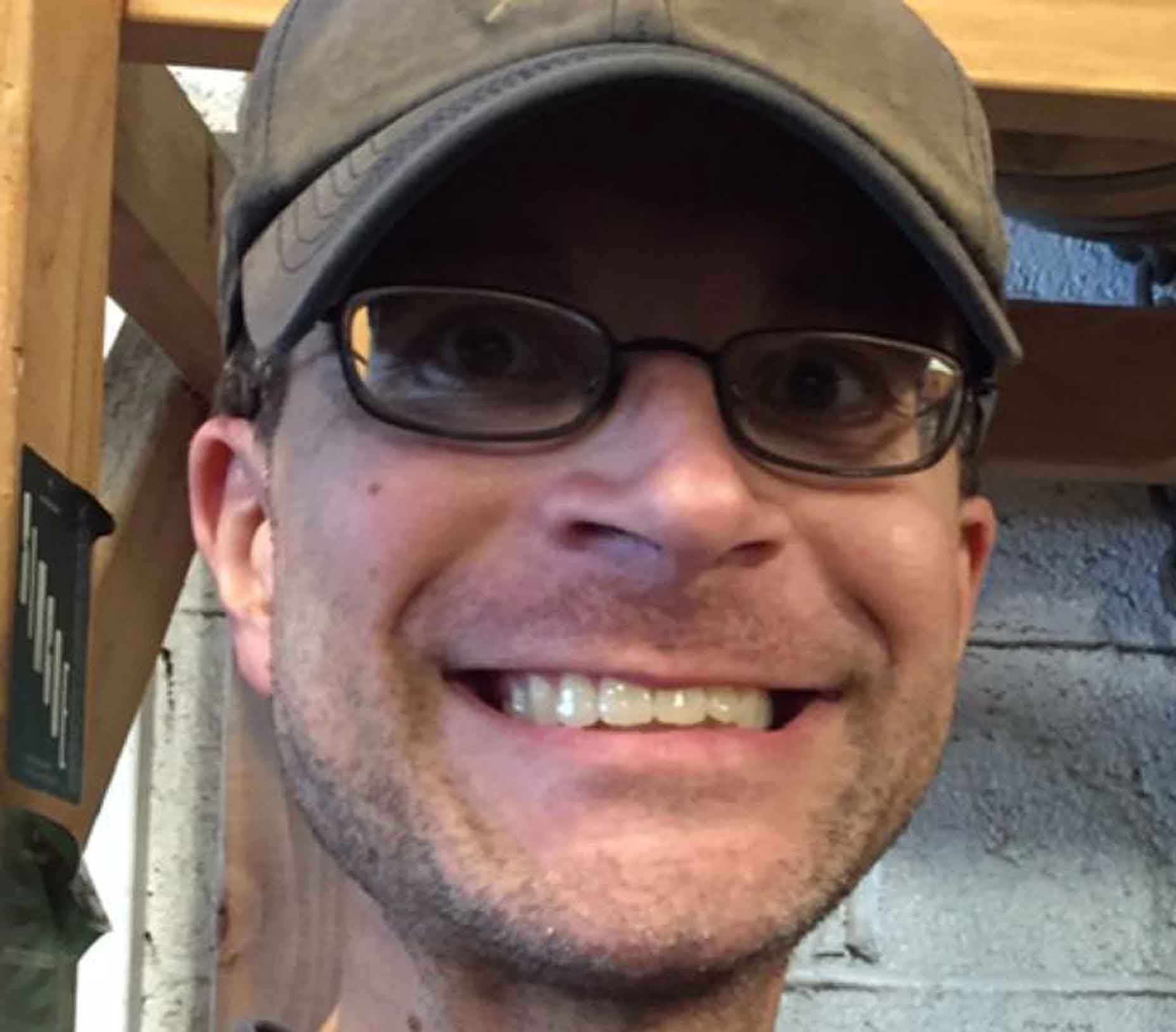
Nick Piastowski
Golf.com Editor
Nick Piastowski is a Senior Editor at Golf.com and Golf Magazine. In his role, he is responsible for editing, writing and developing stories across the golf space. And when he’s not writing about ways to hit the golf ball farther and straighter, the Milwaukee native is probably playing the game, hitting the ball left, right and short, and drinking a cold beer to wash away his score. You can reach out to him about any of these topics — his stories, his game or his beers — at nick.piastowski@golf.com.
